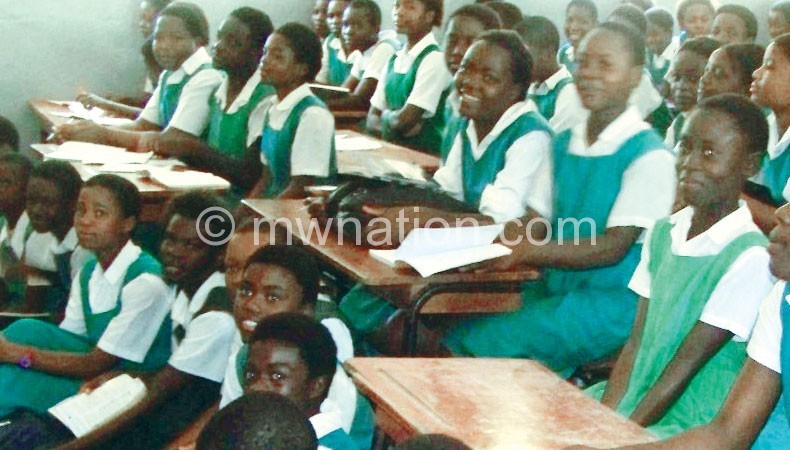Gewe saves Chitipa girls
When Godfrey Mwakapenda, 57, of Traditional Authority (T/A) Kameme in Chitipa, got a court summon directing that he starts to support his three children, he could not believe his eyes. He was shocked to note that it was his three daughters who had initiated the court process.
Mwakapenda divorced his first wife some years back and remarried, after which he cut all ties with the first wife and completely abandoned his children.

The children are Bridget, 21, Elina, 18 and Martha Kapenda, 14. Martha is currently in Form One while the two are in Form Four. Last year in June, They sued their father for negligence and demanded support for their education as their mother could not support them on her own.
“We, as your children, are demanding support from you. Support in form of fees, food, and payment of electricity bills so that we study well and all the basic needs,” reads part of the court claims:
Chitipa First grade Magistrate Julius Kalambo delivered a ruling and Mwakapenda has started paying school fees for the girls.
Such cases are rare in rural areas, where it is regarded as taboo for family members, let alone children, to use the courts to settle family disputes. This is so due to the high levels of illiteracy in the rural areas and lack of awareness of their rights.
However, through the Gender Equality and Empowerment Project (Gewe) campaigns that started in Chitipa District in 2013, more girls are becoming aware of their rights, and are claiming them.
Kalambo has been on the forefront in Chitipa, raising awareness on the rights of the community members. He says between 2014 and 2015, there have been 15 cases where children demanded maintenance from their fathers who had abandoned them.
“You must realise that this is a big step for the children. Most of them worry that suing their father will ruin their relationship and that the fathers can even be arrested. But as we take the message to the children, we tell them that it is a formal talk where we enlighten the father on his responsibilities and how ugly the situation might get if they continue shunning the responsibilities,” he said.
Kalambo explained that when they started the awareness campaigns, people thought they wanted to bring some sort of a revolution because the practice was unheard of in T/A Kameme’s area.
“Little by little people started coming forward with their complaints, which included gender-based violence and family desertion. We were also surprised when we began receiving cases of girls suing their parents. It was a new phenomenon and we are very happy with the openness.
“We do not arrest such parents. Basically, we want to understand the situation that led to their abandoning their children and together we discuss the way forward. All the cases which we have handled have been a success,” he said.
Kalambo, however, said the Kapenda girls’ relationship with their father has been strained.
“It’s always a gamble, but we look at the bigger picture. Children need to get an education and fathers must be responsible of taking care of their children even after separation or divorce. It is time we do away with complete desertion because it’s the children who suffer and it does not help anybody, but makes things worse,” he said.
Kalambo attributed the success of such cases to the Marriage, Divorce and Family Relations Bill which, he said, has enlightened fathers to their need to support children even after they divorce their wives.
Gewe is a three-year project being implemented by the Ministry of Gender and UNFPA.
Gewe implementing partner, and chairperson of the technical working group, Winfred Mowa said the programme also encourages girls to return to school after pregnancy.
“We have visited almost all areas in Chitipa, encouraging mothers to send back to school girls who dropped out due to pregnancy. It is not right to force girls into marriage simply because they fell pregnant,” he said.
Principal Secretary in the Ministry of Gender, Mary Shawa said the European Union-funded project has helped communities understand their rights. Shawa further said she was particularly excited that teenagers are able to interpret the law for their own benefit.
“In a way, this will bring responsibility when it comes to child-bearing, and families will have the number of children they can afford to take care of and not just anyhow. This is what we need,” she said.





